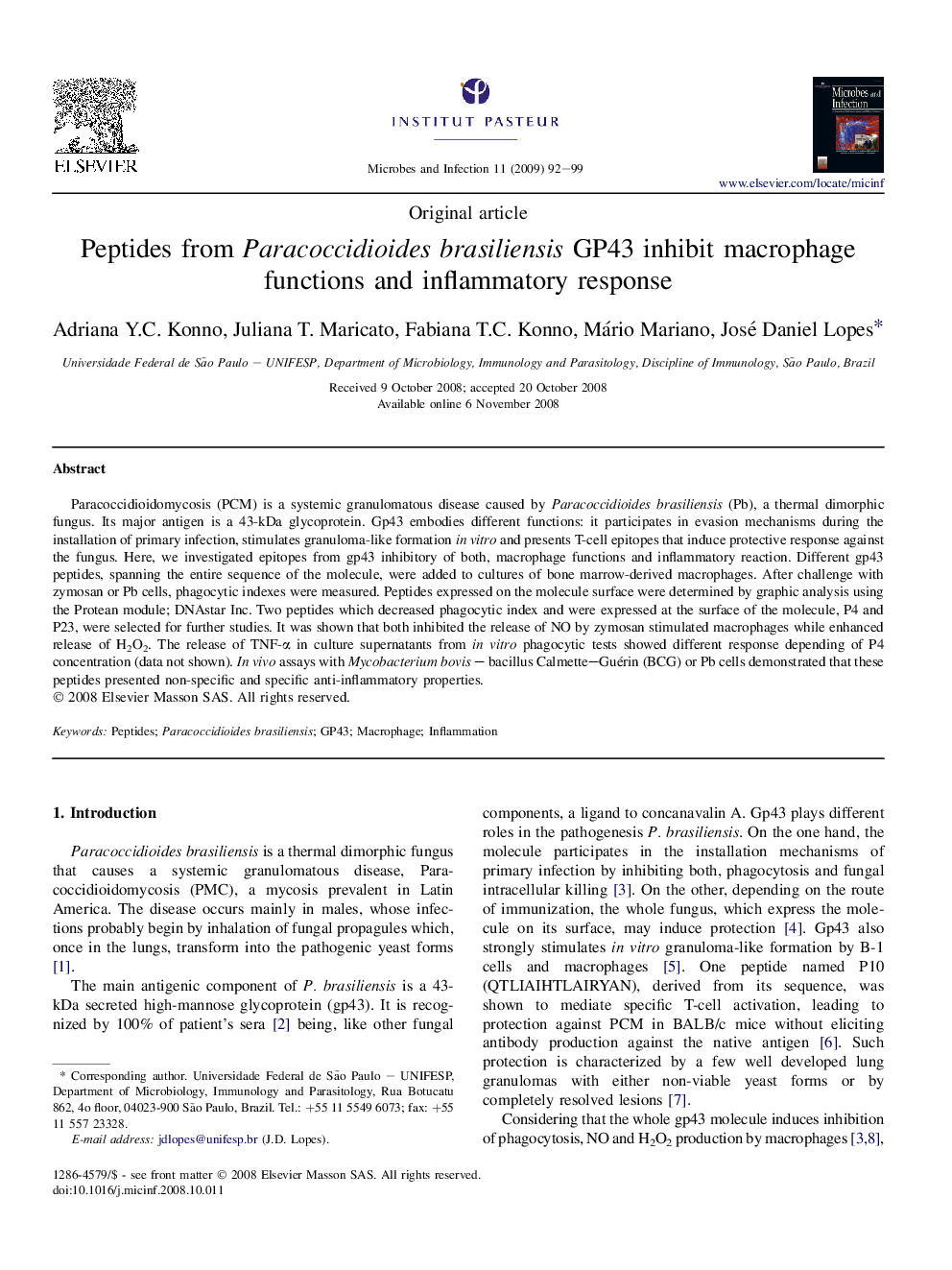| Article ID | Journal | Published Year | Pages | File Type |
|---|---|---|---|---|
| 3415480 | Microbes and Infection | 2009 | 8 Pages |
Paracoccidioidomycosis (PCM) is a systemic granulomatous disease caused by Paracoccidioides brasiliensis (Pb), a thermal dimorphic fungus. Its major antigen is a 43-kDa glycoprotein. Gp43 embodies different functions: it participates in evasion mechanisms during the installation of primary infection, stimulates granuloma-like formation in vitro and presents T-cell epitopes that induce protective response against the fungus. Here, we investigated epitopes from gp43 inhibitory of both, macrophage functions and inflammatory reaction. Different gp43 peptides, spanning the entire sequence of the molecule, were added to cultures of bone marrow-derived macrophages. After challenge with zymosan or Pb cells, phagocytic indexes were measured. Peptides expressed on the molecule surface were determined by graphic analysis using the Protean module; DNAstar Inc. Two peptides which decreased phagocytic index and were expressed at the surface of the molecule, P4 and P23, were selected for further studies. It was shown that both inhibited the release of NO by zymosan stimulated macrophages while enhanced release of H2O2. The release of TNF-α in culture supernatants from in vitro phagocytic tests showed different response depending of P4 concentration (data not shown). In vivo assays with Mycobacterium bovis – bacillus Calmette–Guérin (BCG) or Pb cells demonstrated that these peptides presented non-specific and specific anti-inflammatory properties.
